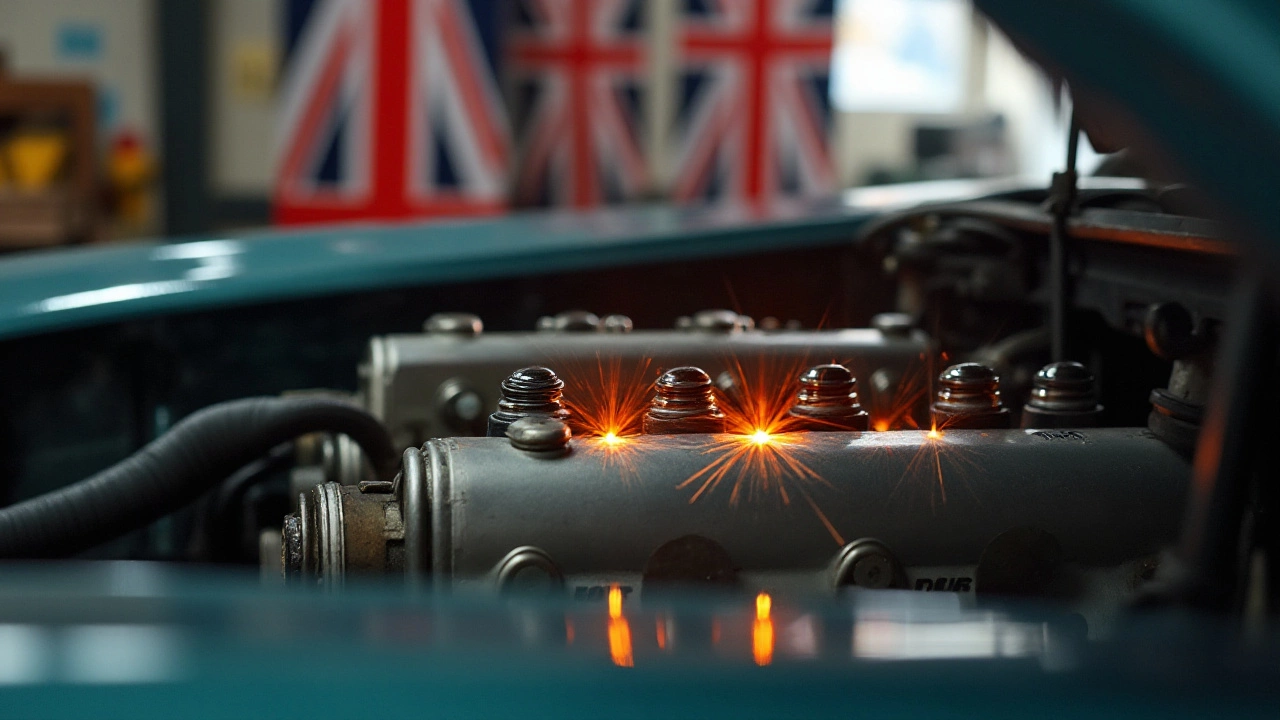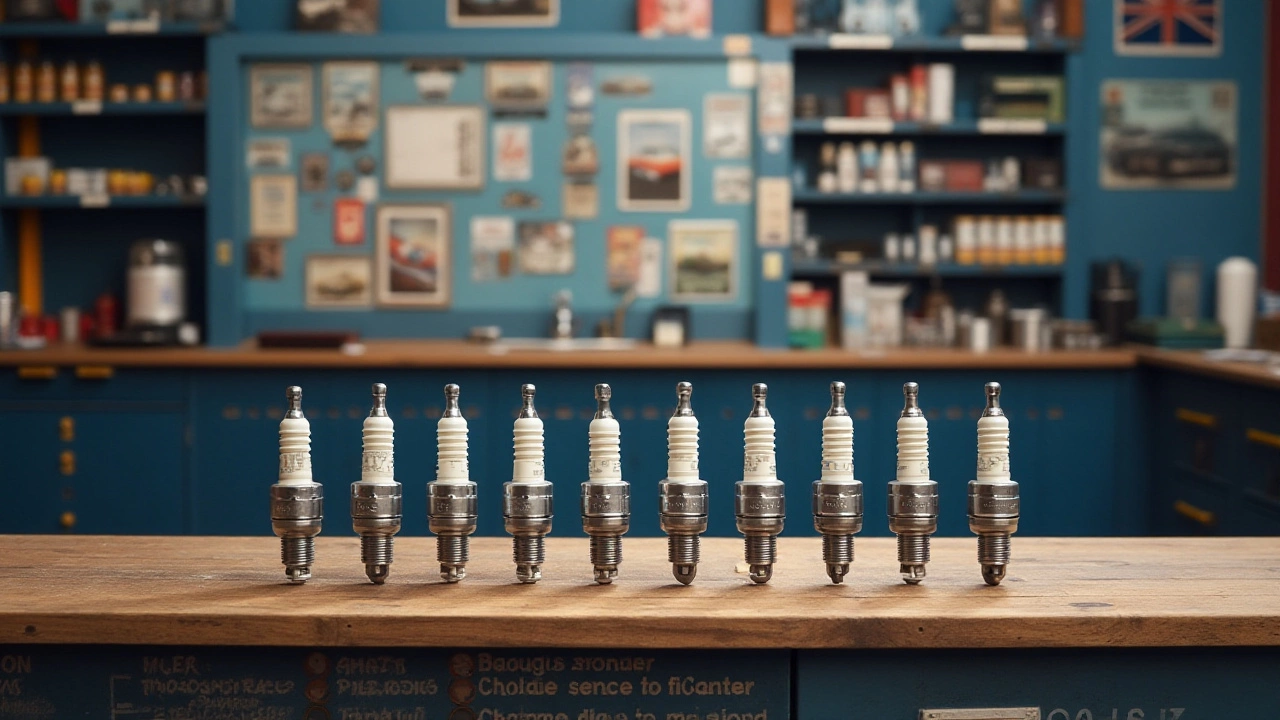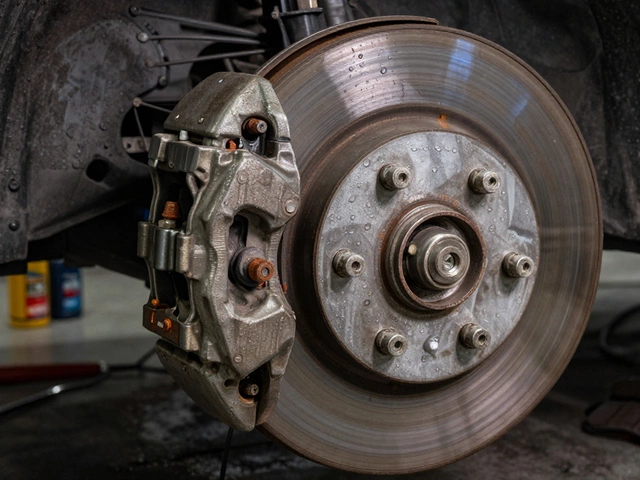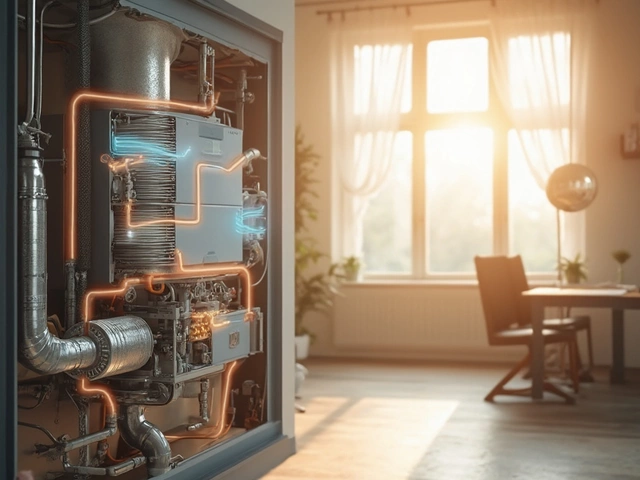Many see spark plugs as nothing more than the tiny yet crucial parts that initiate engine startup. However, these little dynamos are involved in a lot more behind the scenes. From facilitating smooth operations to enhancing fuel efficiency, spark plugs have a hand in transforming every drop of fuel into energy on the move.
Thus, understanding their function can not only be educational but also a reminder of how much these unsung heroes contribute to our daily rides. Delve into this read to discover their secret roles and arm yourself with tips to maintain their longevity.
- The Primary Role of Spark Plugs
- Performance and Efficiency Boosters
- Maintenance and Troubleshooting
- Tips for Prolonging Spark Plug Life
The Primary Role of Spark Plugs
To understand what makes a car engine purr to life, the focus should be on the small but mighty spark plug. Think of it as the match that lights the campfire, except in this case, the campfire is your engine. A spark plug's primary purpose is to ignite the air-fuel mixture in an engine's combustion chamber. Without it, you'd find yourself stranded more often than not. That's how integral these little components are to the workings of a vehicle.
The ignition system, where spark plugs play their primary role, involves creating a spark within a fraction of a second. This spark lights up the mixture of air and fuel compressed within each cylinder of the engine, setting off a mini-explosion that powers the pistons. These repeated mini-explosions, often occurring hundreds of times per minute, are what propel the car forward. Each spark plug is synchronized with the movement of the pistons, ensuring that every time the piston goes up, the spark plug is ready to fire. This coordination is essential for a smooth ride and optimal engine performance.
According to the Automobile Association, "A perfectly working spark plug can help produce a thousand sparks per minute." This efficiency is vital for seamless driving.
Moreover, the energy transfer is astoundingly precise, needing around 12,000 volts to jump the spark gap. Thanks to modern advancements, today's plugs can endure heat and pressure far more extreme than what early car enthusiasts dealt with. Plus, the presence of specific materials in modern spark plugs, like iridium or platinum, aids in durability and efficiency. Keeping these tiny components in top shape is not just about ensuring the engine starts but also about boosting engine performance by burning fuel more effectively. Neglecting them isn't an option for anyone seeking sound car maintenance and optimal engine performance.
Regularly checking these spark plugs is key. A visual inspection can reveal much about your car's health. A well-working plug will appear clean, having a light brown residue on the electrode. Conversely, a plug exhibiting a black or soot-covered appearance might signal problems like incomplete combustion. That's the tell-tale sign for a clogged air filter or incorrect fuel mixture. Under such circumstances, swift replacement or maintenance is advised to avoid potential drops in your vehicle's performance.

Performance and Efficiency Boosters
The myriad roles that spark plugs play go far beyond their initial ignition duties. They are intrinsic to your engine's performance and efficiency, affecting almost every aspect of how your vehicle runs. The sparks they produce ignite the air-fuel mixture in the engine cylinders, converting a chemical process into mechanical energy that powers your car forward. But this process must be just right – too lean or too rich a mixture can lead to missed ignitions, rough idling, or even damage over time. Every little imperfection in spark plug performance can spiral into more significant issues, tinkering with your vehicle's fuel consumption and emission levels.
When it comes to optimizing engine performance, the material of the spark plugs has a significant influence. Traditional copper-tipped plugs are cost-effective but may need frequent changing due to wear. In contrast, iridium or platinum spark plugs offer better performance, greater longevity, and increased resistance to wear under higher temperatures. The design matters as well – multi-ground electrodes can offer multiple pathways for the spark, ensuring more consistent performance even in challenging conditions. Your car’s manual might provide guidance, but understanding these components can help make an informed choice that might boost both efficiency and longevity.
To understand how engine performance and efficiency are tied, it’s important to consider how spark plugs interface with other components. The condition of the ignition system, including things like the ignition coil and wires, directly affects how well the spark plugs can perform. If the ignition timing isn’t calibrated correctly, the engine may knock, resulting in reduced power output and efficiency loss. Regular inspection of the entire ignition system, from coils to wires and plugs, can prevent such issues.
Modern technologies also enable the incorporation of precious metals in spark plugs, allowing them to conduct electricity more efficiently and provide a more enduring spark. In recent studies, spark plug optimization has demonstrated fuel efficiency improvements by a significant margin. A BBC report highlighted, "With new-generation spark plugs, drivers noticed up to 15% better fuel economy," which pinpoints just how integral these components are.
One must not overlook the indirect benefits of well-maintained spark plugs, such as environmental impact. By ensuring a clean and efficient burn, spark plugs help reduce harmful emissions, thus contributing to a more eco-friendly ride. Today’s engines and spark plugs are engineered to meet stringent emission standards without compromising power, which was unimaginable just a few decades back. Staying on top of these components contributes to smoother rides, better gas mileage, and a more sustainable experience.

Maintenance and Troubleshooting
Keeping your vehicle's spark plugs in pristine condition is crucial for a smooth and safe journey. Regular maintenance is not just about preventing mishaps; it's a way to ensure your engine gets the most out of every drop of fuel. Most car manuals recommend changing the spark plugs every 20,000 to 40,000 miles, but it's also wise to inspect them more frequently, particularly if you notice diminished engine performance or increased fuel consumption. A careful eye should look for cracks in the ceramic insulator, wear on the electrode, or any signs of deposits that may have formed. Over time, these little components undergo intense conditions, sparking thousands of times per minute, which can lead to wear and eventual failure.
When troubleshooting spark plug issues, it's important to observe engine behavior closely. A common sign of a problematic plug is an engine that is difficult to start or misfires frequently. This could be attributed to a worn or dirty spark plug, and attending to it promptly can save you from more extensive engine damage. Equally important is understanding the color and condition of the spark plug tip itself. A healthy plug typically has a light tan or grayish color. If you notice black soot or oily deposits, it could be indicative of various problems ranging from a rich fuel mixture to possible oil leaks.
Addressing these issues might seem daunting, but with a practical approach, many car enthusiasts can handle basic maintenance themselves. Always start by consulting your vehicle's manual to ensure you're using the correct type and gap specification for your car's spark plugs. Before replacing, clean the area surrounding the plug to prevent any dirt from entering the cylinder. Using the right tools, like a spark plug socket and torque wrench, is essential to safely remove and install plugs without damaging the threads or plug itself. After replacement, double-check the gap with a feeler gauge to ensure maximum efficiency.
While inspecting the plugs, it's also a good opportunity to consider replacing the spark plug wires or ignition coils if they're showing signs of wear. Investing a little time and resources into proper maintenance can dramatically extend the life of both the engine and the spark plugs themselves. 'Preventive maintenance is preferred to cure,' as automotive expert John Haynes wisely noted in his legendary manuals on car maintenance.
For those who prefer to have professionals handle such intricate tasks, regular visits to a certified mechanic can ensure that your vehicle's engine remains in peak condition. Many modern garages are equipped with diagnostic tools that can detect faults even before they visibly affect driving performance. However, understanding the basics allows you to communicate effectively with your technician, ensuring no details are overlooked in the pursuit of vehicular longevity.

Tips for Prolonging Spark Plug Life
When it comes to ensuring your spark plugs provide long-term service, a little care and attention can make a huge difference. A well-maintained spark plug not only lasts longer but also boosts your engine's performance, contributing to better fuel efficiency and lower emissions. A good place to start is keeping your engine as a whole in check. Regular engine tune-ups ensure that the combustion system is functioning optimally, which extends the life of your spark plugs significantly. Additionally, don’t just focus on the spark plugs alone — the condition of the ignition wires, distributor cap, and rotor are also essential to consider, as any failure in these components can lead to underperforming spark plugs.
Driving habits also have a strong influence on the lifespan of your spark plugs. Avoiding short trips where possible is advised, as these prevent your engine from reaching its full operating temperature, which can lead to fouling of the plugs. Try to incorporate some longer journeys into your schedule, and if feasible, avoid driving with a heavy foot. Rapid acceleration and frequent sharp braking not just burden the engine but also impose undue stress on the plugs.
Using high-quality fuel is crucial too. Contaminants in poor-quality fuel deposit on the spark plugs, making them less efficient. Keep an eye on your fuel consumption; any sudden changes might hint at spark plug wear or fuel-related issues. Whenever you notice your car's performance dwindling or increased fuel usage, inspect the spark plugs promptly. This proactive approach can save you from expensive repairs down the line.
Finally, regular maintenance checks should never be neglected. Remove the spark plugs and inspect them for signs of wear or damage. If you notice carbon buildup or corrosion, it might be time to replace them. Adhering to the manufacturer's recommended replacement intervals can save you from a lot of hassle. Additionally, addressing any rough idling or pinging noises from your engine can also point towards spark plug issues, making timely investigation crucial. By staying alert to these aspects, you can significantly prolong the life of your spark plugs.






